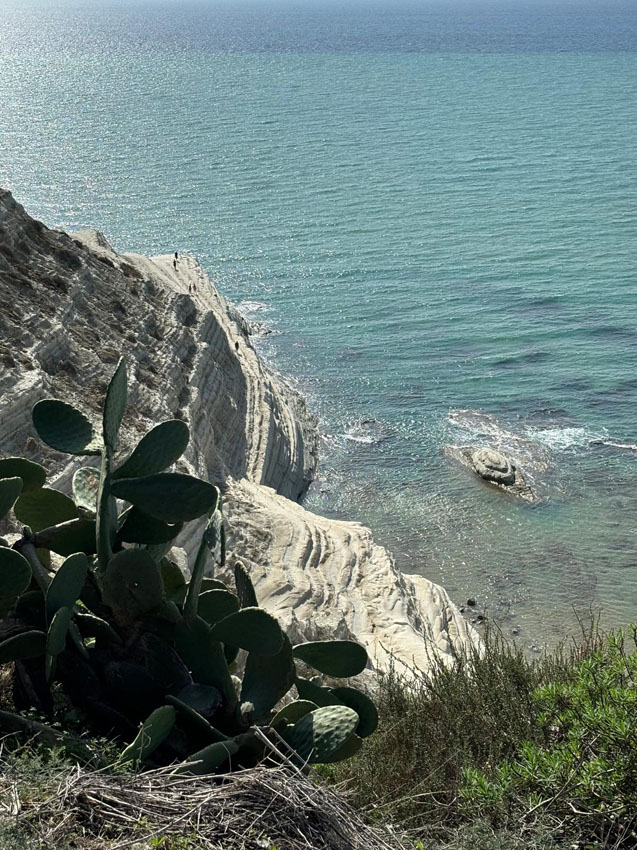In Padua, we thought that through health alarmism and then through bellicist alarmism, both expressed with an elementary, uncritical, polemical, deliberately dramatized, and structurally false discourse, there had been made a scorched earth policy with fear, indeed with terror instilled in minds weakened by decades of virtual reality, fostering senseless horizontal conflicts among us wretched people, such as young against old, women against men, pro-vax against anti-vax, pro-mask against anti-mask; with the goal of dismantling once and for all the outdated iron of tradition, family, seen as a place of abuses, oppression, bullying, and omertà, instead of what it really is (or could be): the last bastion of reciprocal solidarity totally free of charge, and thus an existential threat to financial neoliberalism that would want to reduce us to the status of atomized goods at very low cost without any emotional bond, without any bulwark to cling to. A sophisticated and perverse political-media mechanism put in place even to avoid the emergence of every vertical conflict, namely between us wretched people (but maybe with a political soul and sense of brotherhood) against those who are high up, the powerful, to reclaim the restoration of sacred social rights enshrined in the Constitution, eroded bit by bit thanks to the laziness of many and the criminal zeal of few, installed firmly in the financial power rooms, before even the political ones.
In Padua, we thought that all top representatives of the European Union are, or have been, on the payroll of some enormous pharmaceutical company, or some enormous weapons manufacturer, or, even better, on the payroll of both. People who, on the altar of their Cayman Islands bank account, have sacrificed every last shred of dignity; scum made impermeable to any scruple, therefore willing to sow death and destruction around the world with the precise goal of ruining populations - with the unconditional applause of the traveling clique, self-defined 'information professionals' united in networks and sheets, beneficiaries of the substantial crumbs falling from the well-set political-financial table.
In Padua, we thought that the force driving these madmen must be exogenous, because attributing such an extraordinarily abnormal level of idiocy, and/or criminality, to (almost) all members composing that table (including servants) seems frankly exaggerated. People who should represent 450 million human beings scattered across the continent considered the most culturally advanced of the five, and who for feeding ruinous senseless conflicts (at least at the geopolitical level), and by proxy, for dozens and dozens of months, have managed to produce a single strategic plan consisting of four words and a punctuation mark, a plan copied wholesale from an old and glorious slogan (it was simply a battle cry in support of guerrilla fighters back then, not certainly a political strategy): Hasta la victoria siempre1!
In Padua, we thought that through the dominant ideas (which are the ideas of the ruling classes2) repeated every hour of the day by all large-scale media outlets (in the society of spectacle, obsessive repetition is equivalent to demonstration3) they finally succeeded in transforming democracy into bad faith, corruption, hypocrisy, vile betrayal; forcing us to spiritual hunger, before even material hardship.
In Padua, we thought that a pressing political psychology, which then degenerated into pure propaganda, had thus plotted against us, hardworking people no longer needed in a logic dominated by speculative financial power (the technofeudal oligarchy) that can calmly give a damn about productivity and widespread well-being.
2) The universal bullshit
We abandoned Padua overwhelmed by the reverberation of the universal bullshit, partially reported below in a concise and by no means amusing sampler.
Russia, led by its Hitler figure chasing its 'living space' with 'conquest and destruction wars', wants to reach Lisbon, with Cossacks itching to water the horses of the Don in St. Peter's fountains (overlooking the fact that for Russia, this war against Ukraine is exactly the opposite of a conquest war - being a preventive defense from NATO; the Russian military strategy adopted is exactly the opposite of the carpet bombing used by so-called Western democracies in other parts of the world over the past three decades; Russia is the largest country in the world, with a population of only 17 million per 143 million square kilometers, less than 9 inhabitants per square kilometer and only one expansive problem: somehow filling its enormous territory, so vast, rich in raw materials, varied and complex that it would be barely manageable even if reduced by half - therefore, only for our political representatives and their media entourage, all deficient and criminal, can it appear 'logical' that Russia is itching to conquer an unresourceful territory, the European one, overflowing with deficient and criminal people, as well as hostile ones).
To level a densely populated region in the Middle East to the ground in search of a handful of terrorists who might be lurking there, confused among two million defenseless civilians, is not only fully legitimate but should be considered an extremely commendable deed (if those carrying out carpet bombing are defenders of so-called Western democracies).
The miraculous rigorous doctrine of EU bureaucrats' budget constraints favoring speculative finance and rents is a panacea for everyone, 'as indicated by a continuously growing stock market' (either the stock market or life - given the symmetric and constant decline in production, purchasing power, and consequently the quality of life of workers, which anyway no longer interests the workers themselves).
Monetary sovereignty, increasingly in private hands controlled by elites connected to the transatlantic financial aristocracy possessing the money-making machine, is necessary and right that it impacts 'deliberately and directly' on executive, legislative, and judicial power, that is, the full package, to streamline emergency procedures (always in the name of our supposed security): from personal tracking to decree-imposed medications, ending with the ecumenical distribution of ready-to-use bombs per capita (the difference between offense and defense is now imperceptible).
And ignoring the nonsense about Mars, AI, freedom of opinion and press in our alleged Democracies, Eastern satrapies, transhumanism, the devastating impact of TikTok on free elections in Romania. And ignoring what we (unfortunately) have seen, read, and heard told, on the 'justification' of thoughts, words, deeds, and omissions of all Zionists busy building the so-called Greater Israel.
3) La pars construens
Starting from Padua, we left all these painful echoes behind, promising ourselves to stay grounded, that is, to focus solely on our microcosm, which, fortunately, became much more 'micro' in all aspects. Especially and as much as possible, we sought to nurture the constructive part, after having soured our blood stirring up the muck.
Down here, even more than in Padua, it has become clear that the policies that have depressed public investment and discouraged private investment have determined a structural contraction, perhaps definitive, transforming Italy into a massive Airbnb rental service with attached kitchen4; a nation of slaves, still clinging to sectors with extremely low value-added, yet still capable of producing pockets of resistance, excellences that denote great strength in the creative fabric, composed of people able to resist the irresistible.
It was spontaneous to start from small things to arrive at the big ones, as the young Gabriele Guzzi5 teaches: from the argued dialogue to the diffusion of alternative readings (including poetry), until the stimulation, now not so simple after years of anesthesia to unified networks, of critical thinking. Challenging commercial globalization and the free market, certainly; but proposing an alternative system that highlights the possibility of re-examining the institutional relationships between monetary power and political power, at the root. Because it is not possible that the former decides independently of the latter, acting indiscriminately and uncritically on the lives and deaths of people.
Trying to go concrete. Over these months, we have been able to observe in an unequivocal manner that the austerity forced upon us by the EU for decades does not depend on insurmountable and inevitable technical problems, always promptly identified by highly esteemed criminal gangs called 'rating agencies' (Fitch, Standard & Poor's, Moody's, to mention a few, whose names are on everyone's lips), renowned Anglo-Saxon brands that operate according to mafia-like dynamics following the classic utilitarian logic where everything that benefits the organization is done, and everything that harms or could harm the same must be avoided at all costs - for example, disempowering governments and parliaments of constitutional democracies simply because they intend to increase pensions by a few euros for their elderly citizens, or express the vague intention to slow down the dismantling of public health, or sell off the last remnants of what were once defined as state assets, or public goods.
In these months, we have been able to observe in an unmistakable way that austerity depends solely on an ideological-criminal problem of diabolical origin, thus quite the opposite of a technical reason related to markets, as they want to make us believe. It is, in effect, a deliberate and treacherous choice against the population. One wonders how one cannot notice such evidence. To 'save' peoples, to guarantee newborns, protect children, organize their education, ensure decent health and dignified pensions, money is never available, never and then never again (when instead it is precisely abundant in this financially exaggerated economy). To stuff the world population with expensive pseudovaccines with more than dubious effectiveness, money has been found, even in ways that are far from transparent. To enlarge the military arsenal and make Europe cohesive in hatred and war, maybe to send our young people to die at the front without any shred of valid reason, money is found - or at least it is explicitly understood that it could be found, in unheard-of quantities.
Therefore, it is necessary to act 'negatively,' forcefully contesting the oligarchic management of public affairs, and not just online. An action today facilitated enormously by the emergence of our leaders, former pacifists who have suddenly rediscovered themselves as warmongers, false prophets decided to do anything except sacrifice themselves, who attack cowards and traitors who do not want to be killed at the front in their name. In this way, they are serving us the revolt on a silver platter, for once turning the roles upside down.
But precisely for this reason, we now need to act also in 'positive', making it clear that a non-parasitic economic and productive system, therefore one capable of allowing "the full expression of human personality" (as stated in our Constitution) is truly possible. First of all, we must qualify spending, both public and private, instead of just quantifying it, reversing the paradigm: the economy must serve man, not vice versa.
For even just to begin seriously discussing these issues, it is necessary to break free from bureaucratic chains that bind us. Finally, it is clear that as Italians we should admit that the European project has miserably failed, that the Euro has failed, and that there is no hope of fixing it. Therefore, we must go through a phase of re-acquiring national sovereignty by leaving the EU (which is the political neutralization device of European states), thus making fail the project at the basis of this disjointed patchwork of deficient and criminal people, exploiting the four-year period to set serious foundations for exiting NATO, given the transatlantic situation. And if we need to suffer for a while to do this, well: we have suffered for decades on behalf of others, it would almost be a joy to do it for ourselves.
Returning to partial sovereignty will allow us to reactivate progressively our geopolitical role, with new forms of economic and monetary coordination with only some European countries (those compatible within a system of balances and reciprocal interests), isolating warmongers, as our Constitution dictates, strengthening bilateral trade agreements with all the powers of the world, none excluded, and without prejudice, in a political context that will aim for neutral and peaceful distance from the two great blocs forming under our eyes (US influence and BRICS area). Returning to be a diplomatic terrain for negotiation tables and a point of equilibrium in the heart of the Mediterranean, especially for the Middle East area and the group of North African and Equatorial nations seeking emancipation - for mutual growth that will root out, at its source, uncontrolled immigration.
Solutions simple, even banal, that in a moment of epochal chaos, and thus favorable to change ('Great is the confusion under the sky, therefore the situation is excellent”6), should be the political objective of all those who care about and want to improve the fate of the Country, namely the fate of our poor children - and listing generations to come, if they will ever come..
4) The detachment
These recently listed, although not being complete nonsense that echoes (in reality, we believe they are quite the opposite), when re-read sound like a string of empty illusions. Because ultimately, we are all destined for failure, thanks also to our innate laziness, led to social decay by a bunch of deficient and criminal people, more determined precisely because of these same deficits - but to whom, at least, the same final failure (death) will not be spared, thanks to Musk.
And yet, down here, in the enchanted land of exile, in the remotest corner of Sicily, failure resonates in a completely different way. Like an important match of the team you love watched live, of which you already know the final result (the brutal defeat), the events of this mad world flow before your eyes in a peculiar manner. All this insistence, ours first of all, seems excessive, if not outright ridiculous. Anyhow disproportionate. Here's explained a bit better the feeling of detachment, of being outside yet also behind, without struggling.
Down here, one lives with little, ending up wondering if tomorrow we'll see the sun rise from our balcony, rather than burdening ourselves with existential questions and recriminations. We wonder how much our little sister would have liked this small town, and this small house. We'd have had such fun going down to San Pietro and then climbing the steep stairs that lead to San Giorgio and San Giovanni up to Pizzo Belvedere, in Modica Alta. It's not the same thing, but those stairs can be climbed alone, maybe pretending not to be so. Waiting for the music, which every evening seems to welcome the day to come.








